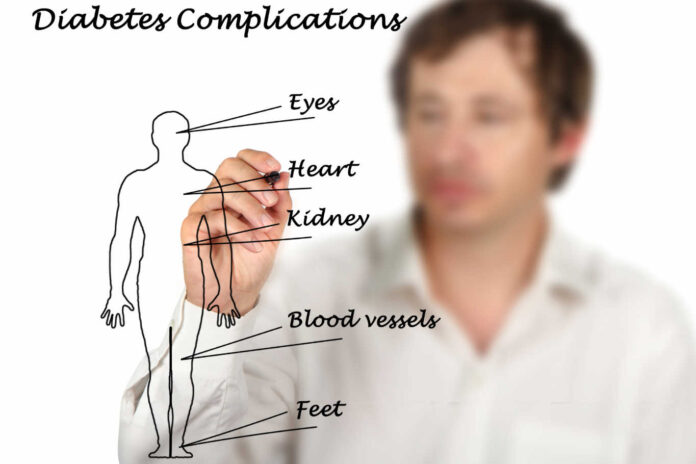
Around 422 million people live with diabetes. In 2016 alone, around 1.6 million deaths were caused by diabetes. Diabetes has affected humans since ancient times. To this day, this disease does not have a cure, although many people live long healthy lives when properly managing diabetes.
It is a chronic disease that occurs when the blood sugar is too high and cannot be properly regulated by the organism. Our body uses sugar, also called glucose, as a major energy source. But to use sugar, the body needs to let it into the cells. This is facilitated by a hormone called insulin which signals to the cells to let sugar in.
Diabetes is a disease in which the body produces little or no insulin. In other cases, it happens when the body can’t make use of insulin. Insulin is produced by a special type of cells in the pancreas called (Beta cells). When the blood sugar level increases, these cells get a signal to quickly make and release insulin.
Maintaining a normal blood sugar level requires an intricate interplay of hormones and organs. Disturbances in this system can cause diseases like diabetes.
High blood sugar poses a serious danger to the body it can deteriorate (blood vessels) and cause other complications such as blindness, excessive urination, heart attack, nerve loss, kidney failure, blurry vision, and a tendency to be at higher risk for infections. These diabetes complications can be deferred or avoided with proper disease management.
Three Types of Diabetes
-
Type 1 Diabetes
Type 1 Diabetes In Type 1 diabetes your immune system falsely believes that insulin-producing cells are a threat and attacks them. As these cells are destroyed, the body loses its innate ability to make insulin. That is why insulin needs to be taken or else the body cannot function. Diabetes 1 is usually an inherited condition and is diagnosed at a young age.
-
Type 2 Diabetes
In Type 2 diabetes, the body produces insulin but the cells cannot use it as a key to let glucose in. That’s because they lose their sensitivity toward insulin. When the body constantly has high levels of glucose in the blood, beta cells wear out. Although the mechanism of why cells become resistant to insulin is not yet understood, factors like extra weight, high-calorie diet, lack of physical activity, and chronic stress often lead to diabetes
-
Gestational Diabetes
The third type of diabetes is called Gestational Diabetes can happen during pregnancy. carrying another human being puts challenges on the mother. One of those challenges is making enough insulin for both the mother and her baby. Often, the body cannot manage it, which leads to the development of gestational diabetes. This type of diabetes usually resolves after giving birth, however, it can cause complications during the pregnancy if not properly managed.
In recent years sedentary lifestyles and unhealthy diets have crept into our lives. That is one of the major reasons why the world is now facing a drastic increase in diabetes too among young people.
This means that it is possible to put diabetes 2 into remission. One measure could be taken by overweight people. Storing too much fat in the liver and pancreas can speed up diabetes 2 development. However, losing extra weight through lifestyle changes or even surgery can have beneficial results. Although a cure for diabetes hasn’t been invented yet. there is hope.
One possible solution lies in stem cell research. Stem cells are special cells that can grow into many different types of cells, including insulin-producing beta cells.
See Also
- Top 5 Habits That Can Cause Heart Attacks
- How to Prevent Heart Attacks
- 5 Easy Steps to Prevent Kidney Stones
Researchers have previously managed to grow beta cells from stem cells in the laboratory setting. However, swapping dysfunctional beta cells for healthy ones is not so simple. In diabetes 1 the immune system attacks beta cells. Different transplantation methods will have to be explored. Until then, our best hope is to maintain a healthy lifestyle.









